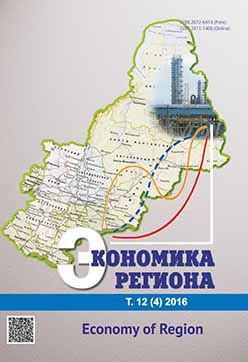A Poor Country Clothing the Rich Countries: Case of Garment Trade in Bangladesh
A Poor Country Clothing the Rich Countries: Case of Garment Trade in Bangladesh
Author(s): Muhammad Mahboob Ali, Anita MedhekarSubject(s): Economy, Geography, Regional studies
Published by: Институт экономики Уральского отделения Российской академии наук
Keywords: Bangladesh; Rana Plaza; garment industry; women labour; textile; trade; multinational;brands; wage;safety;sustainable business;
Summary/Abstract: The ready-made garment industry of Bangladesh is one of the largest formal manufacturing sectors. Ithas played a key role in the country’s process of industrialisation, empowerment of women, export orienteddevelopment and growth. Workers from poor socio-economic backgrounds are working in the garment industry.Their health, safety and working conditions are very poor and not protected. There is a lack of regularinspection and compliance with local law in buildings and factories. This led to the collapse of the eightstory Rana Plaza building in the capital Dhaka on the 24th of April 2013, “killing 1,100 workers and 2,500 injured”2. The main aim of the study is to assess the impact of Rana Plaza Tragedy, where RMG workers makegarments for multinational brands of Australia, Europe and USA, and the advantage which took these companiesof the absence of labour laws, workplace health and safety standards, building standards, long workinghours and low wages in Bangladesh. The study used both primary and secondary data including relatedcase studies. The practical application of the study is to develop formal ethical, labour-law, health and safetystandards for a factory worker; construction; institutions and courts for monitoring the supplier’s behaviouronshore and large multinational firms offshore. The study recommends to protect the rights of women workerswho are sowing garments for the fashion conscious consumers from the developed countries. Future researchwill explore inclusive growth for workers and how to stimulate inclusive sustainable business for exportled garment industry.
Journal: Экономика региона
- Issue Year: 12/2016
- Issue No: 4
- Page Range: 1178-1193
- Page Count: 16
- Language: English

